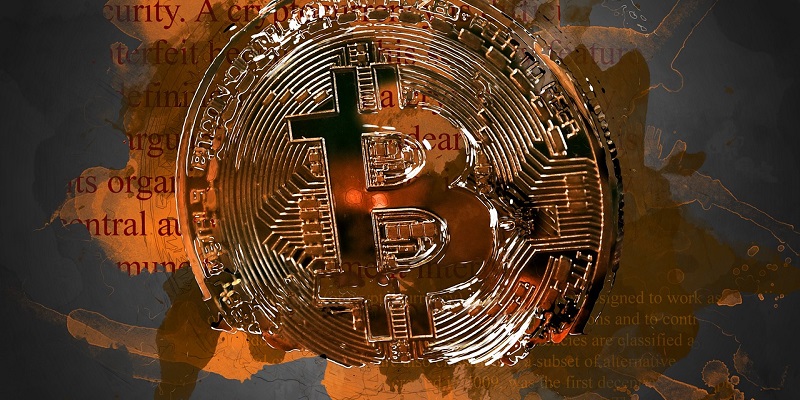In 2009, the world witnessed the birth of Bitcoin (BTC), a groundbreaking digital currency that paved the way for thousands of other cryptocurrencies in the following decade. The emergence of these cryptocurrencies opened up new avenues for making money and reimagining the value of intangible assets through the exclusive right to send data. However, data money is often misunderstood as a passive and solitary entry in a memory device. In reality, it is an active and relational right to transfer data from one place to another. This article explores the transformative role of blockchains in revolutionizing accounting and money transfer, the important role of blockchain accountants or miners, the challenges faced by early pioneers like Bitcoin and Ethereum, and the need for radical change to maintain competitiveness in the evolving landscape of digital currencies.
The Emergence and Value of Data Money
The advent of Bitcoin introduced a novel concept of digital currency backed by cryptographic principles and decentralized control. This decentralized nature allows individuals to have sole ownership and control over their digital assets without the need for intermediaries like banks or governments. This inherent value proposition of digital money has captured the imagination of individuals and businesses around the world, leading to a surge in cryptocurrency adoption.
Active and Relational Nature of Money Data
Contrary to popular belief, digital money isn’t merely a passive entry in a memory device. It represents an active and relational right to transfer data. Every transaction involving digital money requires a complex network of participants, including senders, receivers, and reconcilers. The transfer of digital money involves various processes like validation, encryption, and synchronization, all of which need to be meticulously carried out for seamless data transfers.
Blockchain’s Role in Revolutionizing Accounting and Money Transfer
Blockchains have emerged as a revolutionary solution to address the challenges of accountability and trust in the digital realm. They propose a new accounting system that operates on distributed ledger technology, enabling secure and transparent transactions. Blockchain technology not only eliminates the need for intermediaries, but also ensures the immutability and authenticity of transactions, making it an ideal solution for the transfer of data and money.
The Role of Blockchain Accountants or Miners
Blockchain accountants, commonly referred to as miners, play a vital role in maintaining the integrity and security of transactions. Miners invest their time, energy, and infrastructure to ensure that transactions are approved and registered in the blockchain. Through computational power, miners compete to solve complex mathematical puzzles and validate transactions. Successful miners are rewarded with newly created digital tokens as an incentive for their efforts.
The Early Days of Mining and the Unexpected Growth of Bitcoin
In the early days of Bitcoin, mining was relatively easy as the network had fewer participants. However, as more people began transacting and the value of Bitcoin skyrocketed, mining became increasingly competitive. The mining process required more powerful computational resources, leading to the emergence of specialized mining hardware known as ASICs (Application-Specific Integrated Circuits). This unexpected growth of Bitcoin highlighted the untapped potential of digital currencies and their ability to disrupt traditional financial systems.
The Efficiency and Drawbacks of the Ethereum Blockchain
The Ethereum blockchain, with its smart contract capabilities, resolved several perceived limitations of Bitcoin. It offered faster transaction times and increased energy efficiency. However, as the Ethereum network became more popular and its value against the dollar surged, the cost of transactions, measured in Ether and referred to as gas, also increased. This increase in transaction costs highlighted scalability issues and the need for further improvements.
Volatility in Cryptocurrency Markets and the Need for Faster Transactions
The extreme volatility of cryptocurrency markets necessitated the need for quick execution of buy and sell decisions. Traditional blockchains like Bitcoin and Ethereum faced challenges in meeting this demand for faster transactions. To address this issue, participants in cryptocurrency markets increasingly relied on increasing the gas fees paid for moving digital currencies. However, this solution was not sustainable in the long run and highlighted the need for innovative approaches to enhance transaction speed.
Introduction to the New Generation of Blockchains
Recognizing the limitations of existing blockchains, a new generation of blockchains emerged, often referred to as platforms. These platforms, including Cardano, Polkadot, and Avalanche, offered actors opportunities to build entire markets or interchain networks. These platforms provide enhanced scalability, interoperability, and advanced features such as cross-chain communication, allowing actors to carry out transactions seamlessly across structurally diverse blockchains.
Bridging Different Blockchains and Conducting Transactions
The advent of interchain networks has made it possible to bridge blockchains with varying structural configurations. This breakthrough development enables actors to carry out transactions seamlessly across different blockchains, unlocking a multitude of possibilities and expanding the scope of decentralized finance applications.
The Need for Radical Changes in Bitcoin and Ethereum
As the landscape of digital currencies evolves, it is crucial for Bitcoin and Ethereum, the pioneers, to embrace radical changes to protect their competitive edge. Scalability and transaction speed are key areas that require urgent attention. By adopting innovative solutions, such as layer-two protocols or sharding, these blockchains can enhance their performance, attract more users, and solidify their positions in the ever-competitive cryptocurrency market.
The rise of data money and the transformative power of blockchains have disrupted traditional notions of money transfer and accounting. The active and relational nature of data money has opened up new possibilities for individuals and businesses across the globe. However, to ensure longevity and sustained growth, existing blockchains must adapt and address scalability and transaction speed challenges. Embracing radical changes and leveraging advancements in technology will be crucial to maintaining a competitive edge in this rapidly evolving landscape of digital currencies.

